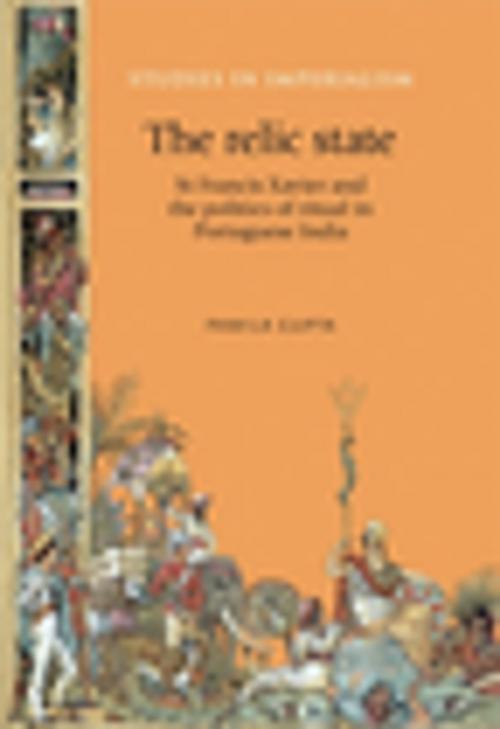The relic state
St Francis Xavier and the politics of ritual in Portuguese India
Nonfiction, History, Ireland, Social & Cultural Studies, Political Science| Author: | Pamila Gupta | ISBN: | 9781526112163 |
| Publisher: | Manchester University Press | Publication: | May 16, 2016 |
| Imprint: | Manchester University Press | Language: | English |
| Author: | Pamila Gupta |
| ISBN: | 9781526112163 |
| Publisher: | Manchester University Press |
| Publication: | May 16, 2016 |
| Imprint: | Manchester University Press |
| Language: | English |
This book is a study of the complex nature of colonial and missionary power in Portuguese India. Written as a historical ethnography, it explores the evolving shape of a series of Catholic festivals that took place throughout the duration of Portuguese colonial rule in Goa (1510–1961), and for which the centrepiece was the 'incorrupt' corpse of São Francisco Xavier (1506–52), a Spanish Basque Jesuit missionary-turned-saint. Using distinct genres of source materials produced over the long duree of Portuguese colonialism, the book documents the historical and visual transformation of Xavier’s corporeal ritualisation in death through six events staged at critical junctures between 1554 and 1961. Xavier’s very mutability as a religious, political and cultural symbol in Portuguese India will also suggest his continuing role as a symbol of Goa’s shared past (for both Catholics and Hindus) and in shaping Goa’s culturally distinct representation within the larger Indian nation-state.
This book is a study of the complex nature of colonial and missionary power in Portuguese India. Written as a historical ethnography, it explores the evolving shape of a series of Catholic festivals that took place throughout the duration of Portuguese colonial rule in Goa (1510–1961), and for which the centrepiece was the 'incorrupt' corpse of São Francisco Xavier (1506–52), a Spanish Basque Jesuit missionary-turned-saint. Using distinct genres of source materials produced over the long duree of Portuguese colonialism, the book documents the historical and visual transformation of Xavier’s corporeal ritualisation in death through six events staged at critical junctures between 1554 and 1961. Xavier’s very mutability as a religious, political and cultural symbol in Portuguese India will also suggest his continuing role as a symbol of Goa’s shared past (for both Catholics and Hindus) and in shaping Goa’s culturally distinct representation within the larger Indian nation-state.















